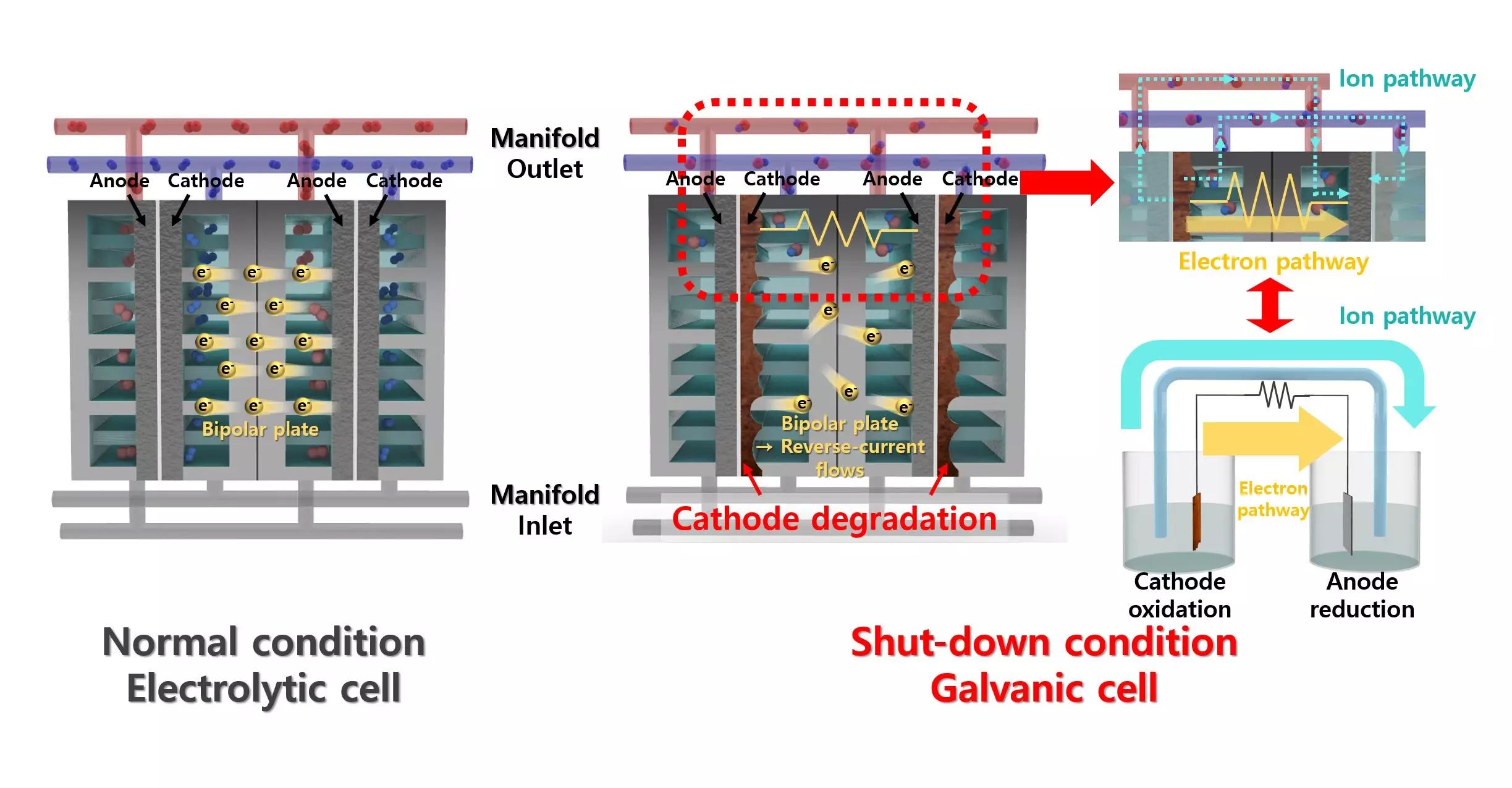In an electrifying stride toward sustainable energy, a team of researchers has unveiled a groundbreaking catalyst designed to tackle one of the most persistent challenges in alkaline water electrolysis. This innovative discovery, spearheaded by Professor Jeong Woo Han of Seoul National University, alongside a talented group from Pohang University of Science and Technology (POSTECH), highlights a unique approach to enhancing hydrogen evolution reactions. The significance of their work was recognized when their findings were featured as a cover article in *Advanced Functional Materials* on July 3.
The crux of their research lies in addressing the degradation commonly faced by electrolyzers during intermittent energy supply, prevalent in renewable energy sources. As solar and wind power generation can be erratic due to natural conditions, ensuring efficient hydrogen production becomes essential. This research introduces a compelling solution: a lead (Pb) coating on nickel (Ni) catalysts, an idea that flips the narrative around traditional catalytic materials.
Revamping Hydrogen Production
Traditionally, lead has been shunned for its low effectiveness in facilitating hydrogen evolution reactions. However, the research team’s radical experimentation shows that when coupled with nickel, lead can amplify catalytic performance significantly. By accelerating proton desorption and enhancing water dissociation, this unconventional pairing has unexpectedly set a new standard in catalyst efficiency. The scientists have effectively transformed lead from a discarded option into a powerful ally in hydrogen production.
The implications of this finding are immense. With the lead-coated nickel catalyst, not only do the researchers combat the damaging effects of reverse currents—which have traditionally hampered electrolyzer durability—but they also streamline the entire hydrogen production process without requiring cumbersome additional equipment. The simplicity of this solution stands as a testament to innovative thinking in the field of materials science and energy technology.
Ecological Impact and Future Prospects
The environmental repercussions of this research are profound. Hydrogen, when produced efficiently via water electrolysis, can serve as a clean energy carrier, reducing reliance on fossil fuels. By creating a catalyst that mitigates degradation caused by reverse currents, this research paves the way for more resilient and sustainable energy systems to harness intermittent resources more effectively.
Moreover, the courage to experiment with a material often deemed unsuitable reflects a broader trend in modern scientific inquiry—one that encourages deviation from the status quo in pursuit of solutions to urgent energy challenges. The adaptability of this research lends itself to a myriad of applications in energy storage and distribution, aligning perfectly with global efforts to transition toward a cleaner, hydrogen-powered future.
The enthusiastic response from the research team also underscores the collaborative spirit driving advancements in renewable technology. As noted by Professor Yong-Tae Kim, this research doesn’t merely incrementally improve existing systems—it fundamentally disrupts the foundational understanding of how materials can be optimized for better energy efficiency.
The pursuit of innovative solutions in the realm of hydrogen production demonstrates an unwavering commitment to ecological sustainability and technological advancement, potentially transforming the energy landscape for generations to come. The potential of this revolutionary catalyst could signal the dawn of a new era in renewable energy utilization.


Leave a Reply